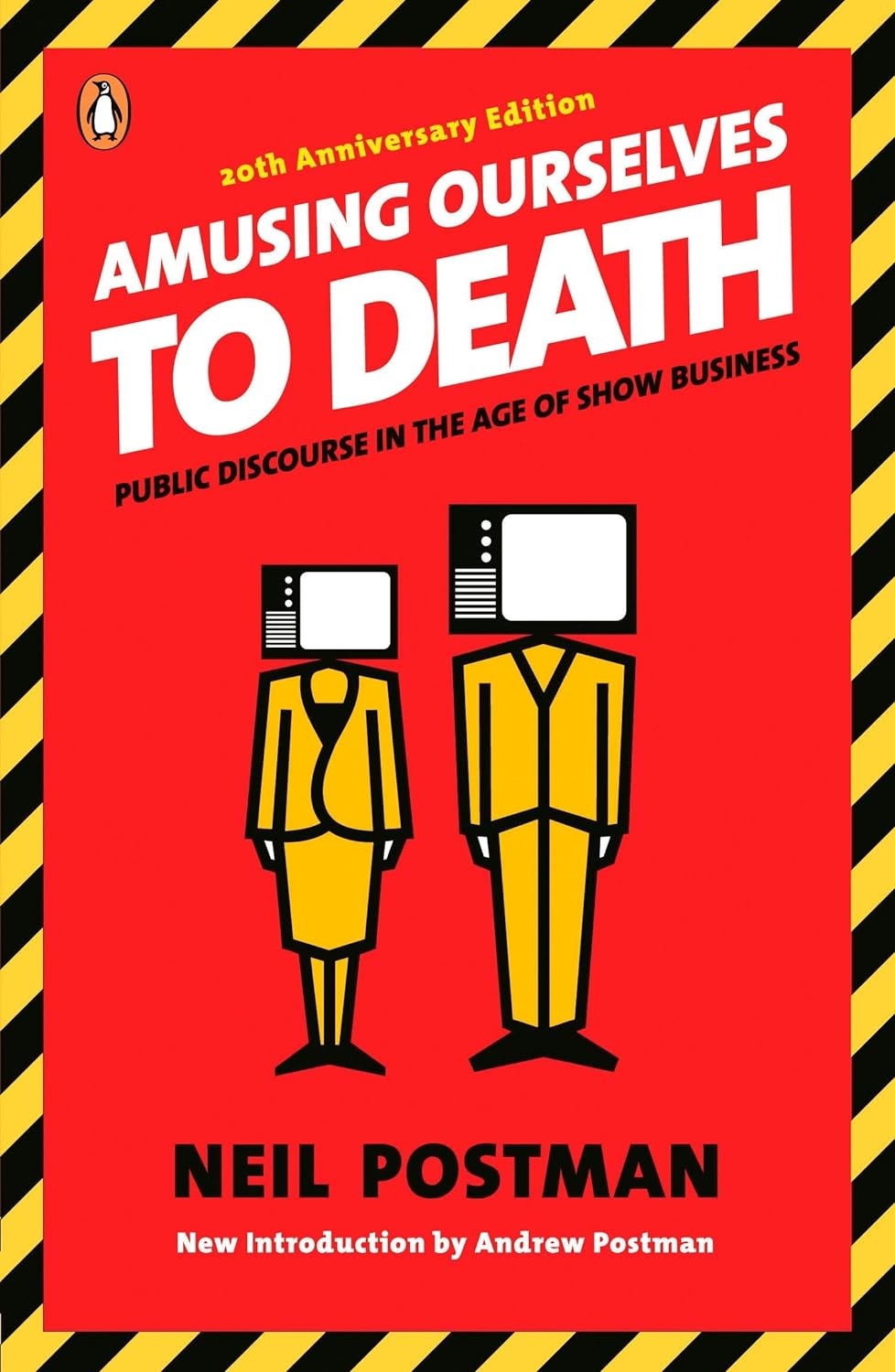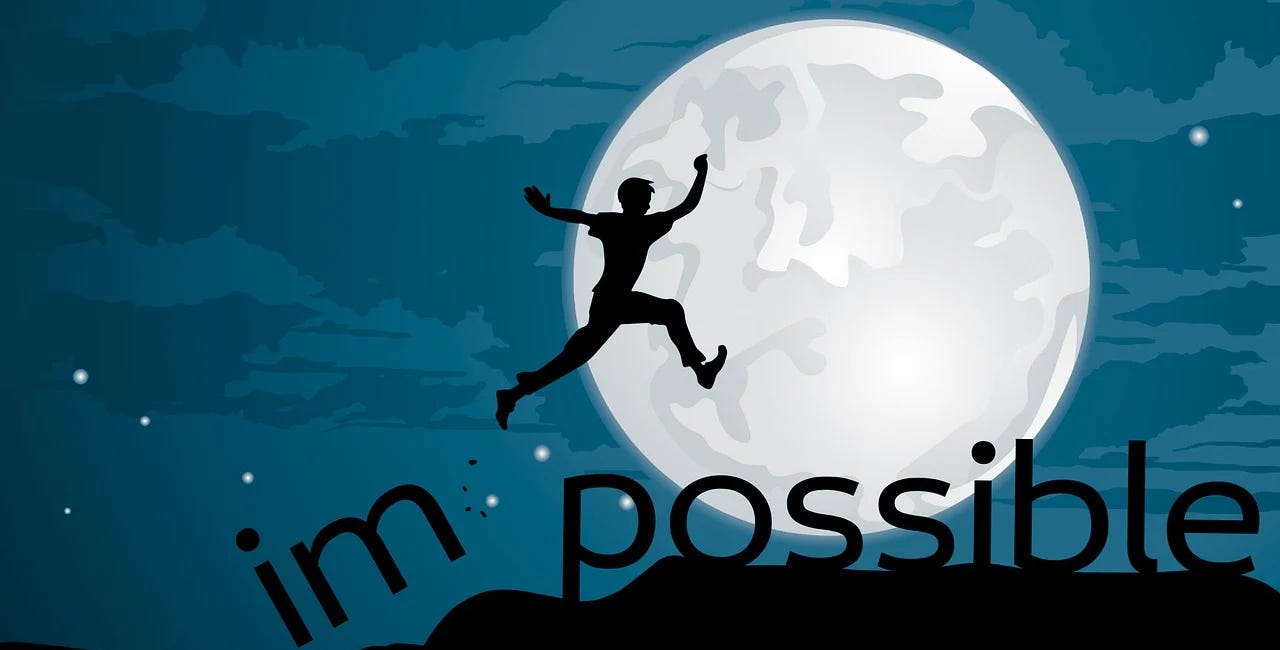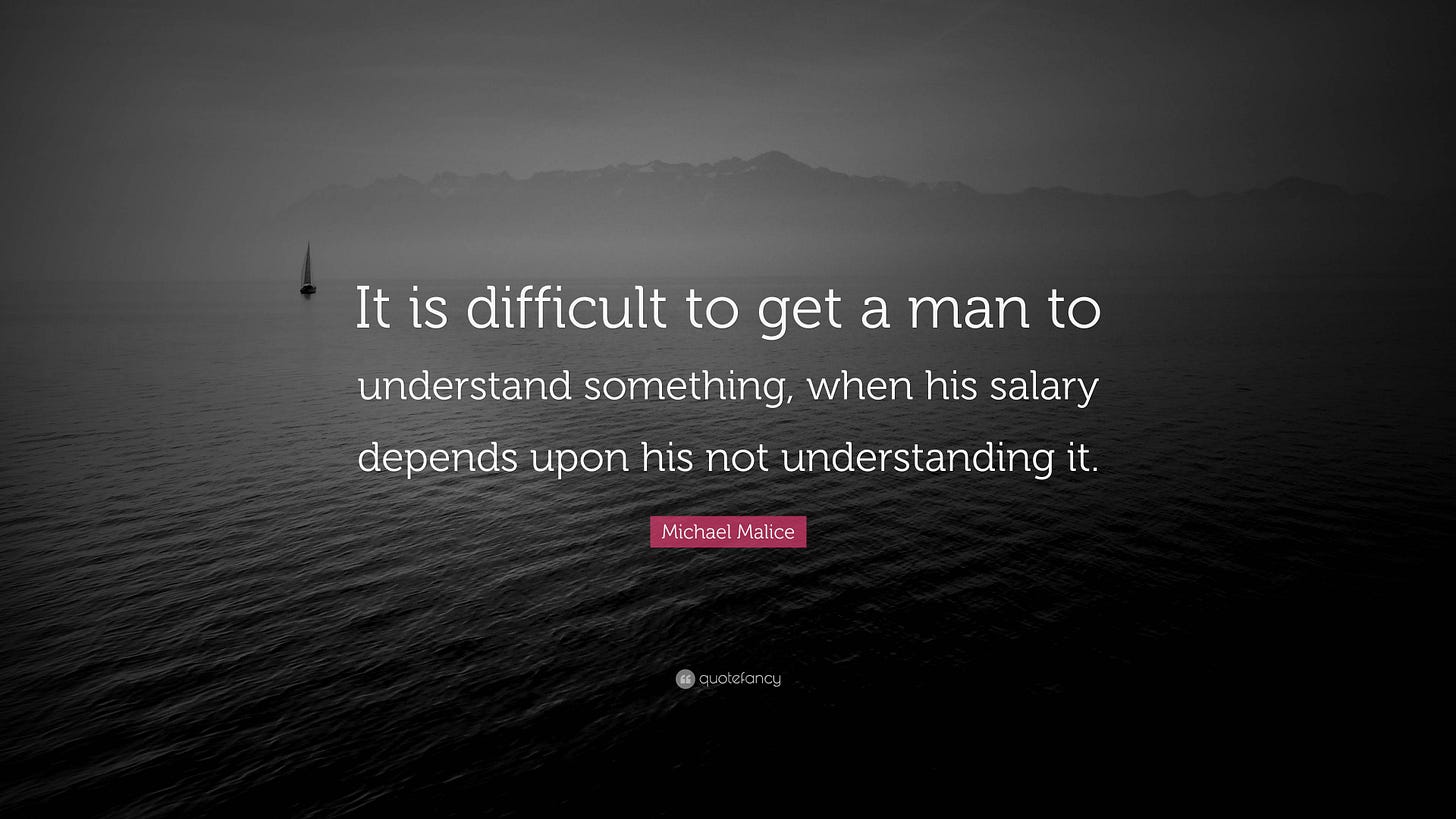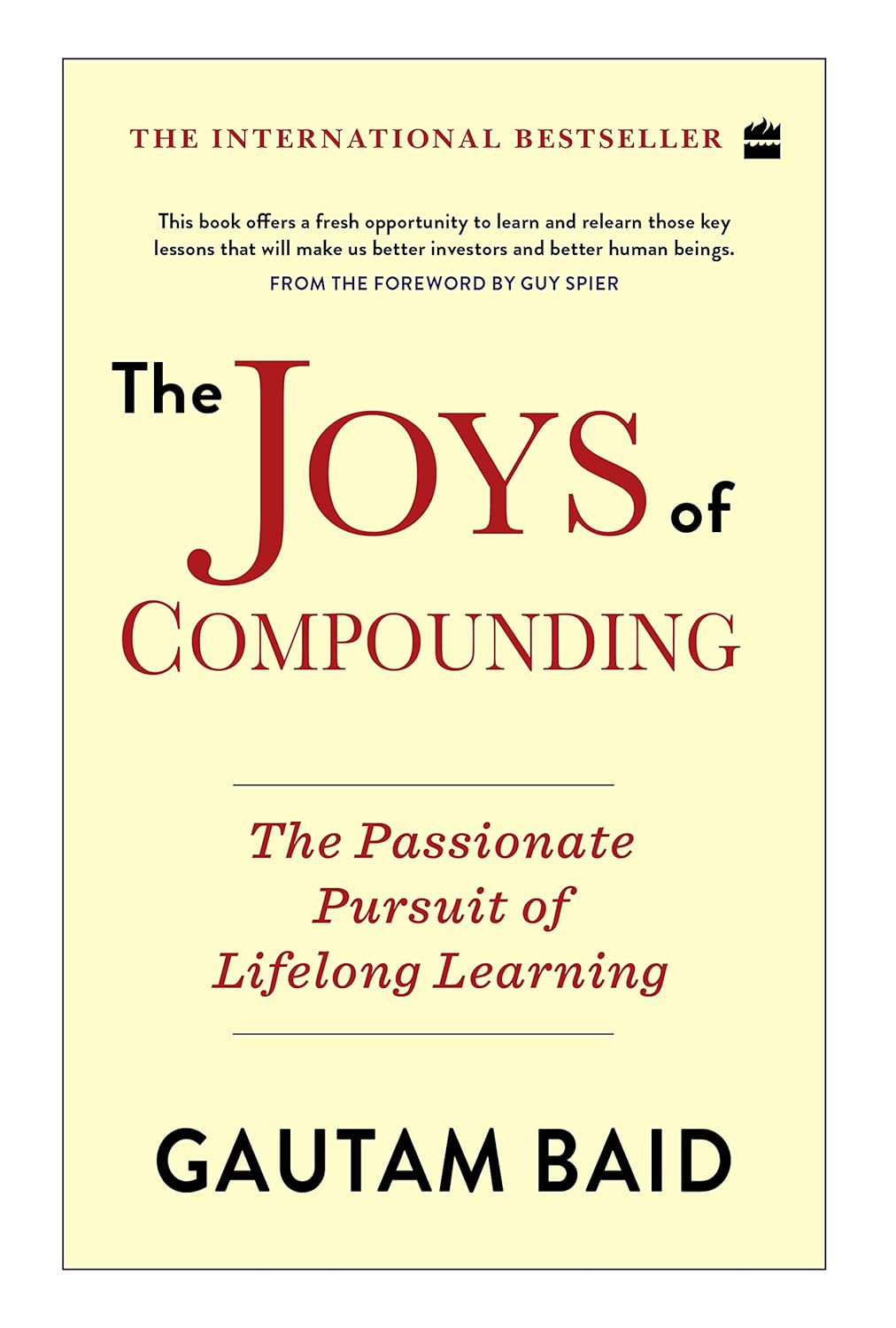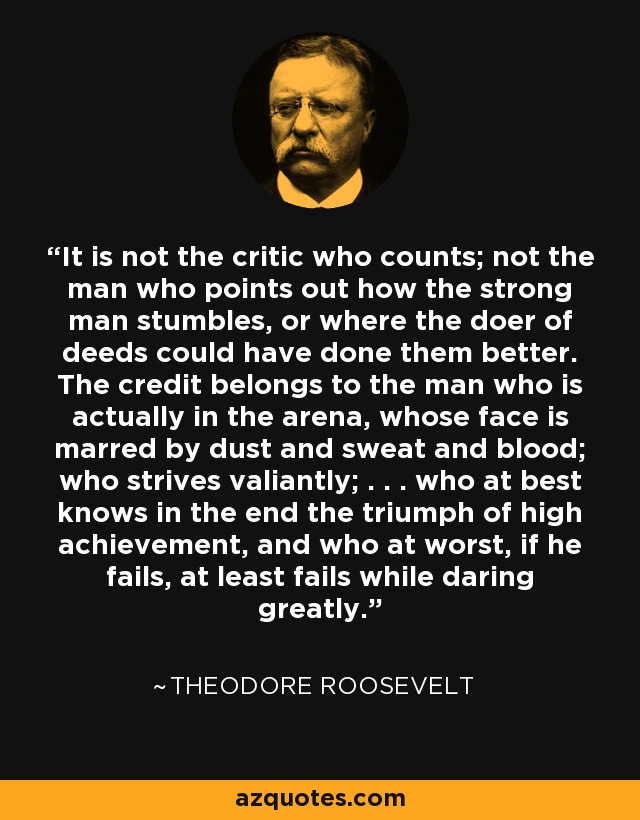#NotJust "The System": Aren't All of Us a Part of The System?
Reflections on the question of whether to be inside or outside "the system", through the prism of the Indian Civil Service; and why we may not have a choice after all!
Hello Dear,
How are you? Hope you are being and doing good. I had begun yesterday’s post by saying that someone has told me that my writing is rather pointless since they are not reaching “the masses”. And when I happened to discuss this with a friend yesterday, she too asked me, “Tell me Joy, who is reading these days”?
“I mean, I don’t know if people have time to read. So yeah, when she says pointless, I understand. Forget bringing about change and all; reading, appreciating genuine things. No one has time. Everyone is caught up in achieving something, they have no idea what.”
My friend’s words above remind me of the prophetic words of Neil Postman, in the preface to his 1985 book Amusing Ourselves to Death: Public Discourse in the Age of Show Business. Indeed, we have discussed this book multiple times, in this #NotJust Newsletter.
“What Orwell feared were those who would ban books. What Huxley feared was that there would be no reason to ban a book, for there would be no one who wanted to read one. Orwell feared those who would deprive us of information. Huxley feared those who would give us so much that we would be reduced to passivity and egoism. Orwell feared that the truth would be concealed from us. Huxley feared the truth would be drowned in a sea of irrelevance. Orwell feared we would become a captive culture. Huxley feared we would become a trivial culture, preoccupied with some equivalent of the feelies, the orgy porgy, and the centrifugal bumblepuppy. As Huxley remarked in Brave New World Revisited, the civil libertarians and rationalists who are ever on the alert to oppose tyranny "failed to take into account man's almost infinite appetite for distractions." In 1984, Huxley added, "people are controlled by inflicting pain. In Brave New World, they are controlled by inflicting pleasure. In short, Orwell feared that what we hate will ruin us. Huxley feared that what we love will ruin us".” - Neil Postman
Well, I think my friend’s concerns may be unfounded or rather underfounded, when she says that few people are reading these days. [Well, her concern is #NotJust about reading, but more about what we pay attention to, what we value and appreciate in our lives, so yes, in that sense, her point deserves introspection and reflection.] As far as India is concerned, I find data which shows that Indians are reading more and that the reading habit has only increased post the COVID-19 pandemic. An older article says that Indians are the ones who read the most in the world. But yes, this still leaves the question as to what we are reading; for instance, whether a lot of this reading is studying for exams and courses or reading newspapers. There is another school of thought, however:
Read What You Love Until You Love to Read - Naval Ravikant (more here)
Ok, so in response to my friend’s thoughts, I shared with her the following article, which I think is on almost the same theme which she spoke about.
Is Short Always Sweet? Can('t) It Be Bitter Too?
Reflections on the increasing shortness of our communications and interactions in modern life, and the impact of this paradigm on our lives and relationships.
While she said this article is really nice ( I really appreciate her for having read it in full), she requested me that I shorten it so that she can send it to some of her colleagues who continue to be interested in reading. I told her that is quite interesting, that she is asking me to shorten an article which rues our preference for shortness. 😊
Well, let us now come to the topic for today. We pick off from the following One Doubt Please article, where we explored the pros and cons of striving to bring about a change in “the system”, from within the system vs. from the outside.
#NotJust Security: The Real Risk of Staying on in A "Secure" Profession or "Permanent Job"
Reflections on hope, hopelessness, fear, safety, security and risk; through the prism of my relationship with the Indian Civil Service.
And yes, our exploration was largely through the prism of the “permanent” civil service, in the hope that this inquiry will provide some illumination even to those who are not in the civil service.
The point I wish to make is very simply made. In the above article, we had argued that one strong reason for choosing to stay on in the civil service, in “the system” could be the need and desire to retain “skin in the game”.
Losing skin in the game can result in multiple kinds of dangers. One, it can imperil our very understanding of reality; not having our skin at risk, we might fail to understand the situation which is faced by those “in the arena”.
However, could Upton Sinclair’s observation be a counterpoint to this?
It is difficult to get a man to understand something when his salary depends upon his not understanding it. - Upton Sinclair
I mean, I think it can be very difficult - or even impossible - for those in the civil service, those inside “the system”, to understand those realities about their existence and the system to which they belong, which their salary does not want them to understand. Well, one would imagine salary to be an inanimate concept, not with such motives; what we mean is rather that their dependence on salary can make them unable to countenance certain truths which would be visible to those who are not dependent in such a manner. Yes…
Only free people can be honest. Only honest people can be free. - Gautam Baid
This is what Baid tells us in the chapter “Never Underestimate the Power of Incentives” in his 2019 book The Joys of Compounding: The Passionate Pursuit of Lifelong Learning. [We have discussed this book here already].
So, that is about the relationship between skin in the game and our ability to grasp reality, to understand the truth of our existence. The second potential danger of losing skin in the game is that it can result in the loss of our credibility and trustworthiness. I think this is one reason why people like consultants and academics are often criticized or distrusted. People suspect that they have their own axes to grind (often, rightly so), that they do not and would not have in mind the best interests of “the system” or “the client” whom they advise or are purported to serve. Indeed, this distrust extends to the media as well, wherein those who ask critical questions are looked upon as a hindrance or a nusiance to progress and development.
It is not the critic who counts; not the man who points out how the strong man stumbles, or where the doer of deeds could have done them better. The credit belongs to the man who is actually in the arena, whose face is marred by dust and sweat and blood; who strives valiantly; . . . who at best knows in the end the triumph of high achievement, and who at worst, if he fails, at least fails while daring greatly. - Theodore Roosevelt
Well, the third and related potential danger of getting outside “the system” is that one loses the very ability to bring about change, through the simple yet existential act of getting out of it. Indeed, we have examined this in the previous article which we have referred to above. We recalled what a character says in MacBird!, a 1966 satirical play by Barbara Garson.
“In speaking out one loses influence.
The chance for change by pleas and prayer is gone.
The chance to modify the devil’s deeds as critic from within is still my hope.
To quit the club! Be outside looking in!
This outsideness, this unfamiliar land,
From which few travelers ever get back in . . .
I fear to break; I’ll work within for change.” - Stevenson, in Barbara Garson’s MacBird!
Having made these observations, I would like to now place before you a reflection which occurred to me last year, which I believe is a potential one-stroke counterargument to all of the above. Put very briefly and simply:
THE WORLD IS “THE SYSTEM”!
Yes, this is one destination where my reflections have led me. That it is incorrect to think that one has to be inside the government system, in the civil service, in order to be in “the system”. If we take it that the role of government and of the system is to bring about, facilitate, enable and inspire positive social change, then all of us in local, national and global societies are an intrinsic part of this movement, this mission, isn’t it? Yes, the only way by which the state can help bring about sustainable societal development at scale is by enlisting its citizens and all other stakeholders such as active participants, owners and ambassadors of the change process. In fact, this is core to the very idea of “government of the people, by the people and for the people”, right? Of democratic governance in a republic. This is the fount of inspiration which made me tell a a journalist a few weeks ago that “you too are a part of the government”.
So, all of us, wherever we are, are in the system. We cannot escape the system. We cannot escape this fact. And of course, the whole world is one connected system.
What does this mean, for the arguments we have examined so far? One, we need not and hopefully should not lose our skin in the game, even if we step outside the civil service or “the system” as it is conventionally defined. This need not necessarily undermine our understanding either; in fact, it can enhance our understanding if we are financially independent and free, as Gautam Baid says above. It need not necessarily dent our credibility as well, if we are able to establish ourselves as trustworthy by aligning our interests with “the public good”.
Well, need not…that does leaves many questions unanswered. Maybe we can explore them later…also, before I close, I would like to add that the world of course is #NotJust one system, it is multiple systems or sub-systems as well. But yes, what I am saying above is that it is and can be viewed as one single system as well. And also, speaking of insiders vs. outsiders, another point to note is that one can be an outsider even while being on the inside, and one could be inside even while being on the outside. Moreover, there are many insides in every system, since every system is composed of numerous sub-systems. So, the question of inside vs. outside is not so binary as we tend to think it to be.
Well, let us leave these questions for now and close on this imperfect and incomplete note. 😊
Does any of this make any sense, or add some value? I would be happy to hear from you. My email is newdheep@gmail.com; you can give your views in the comments section as well. Thank you! - Dheep.




